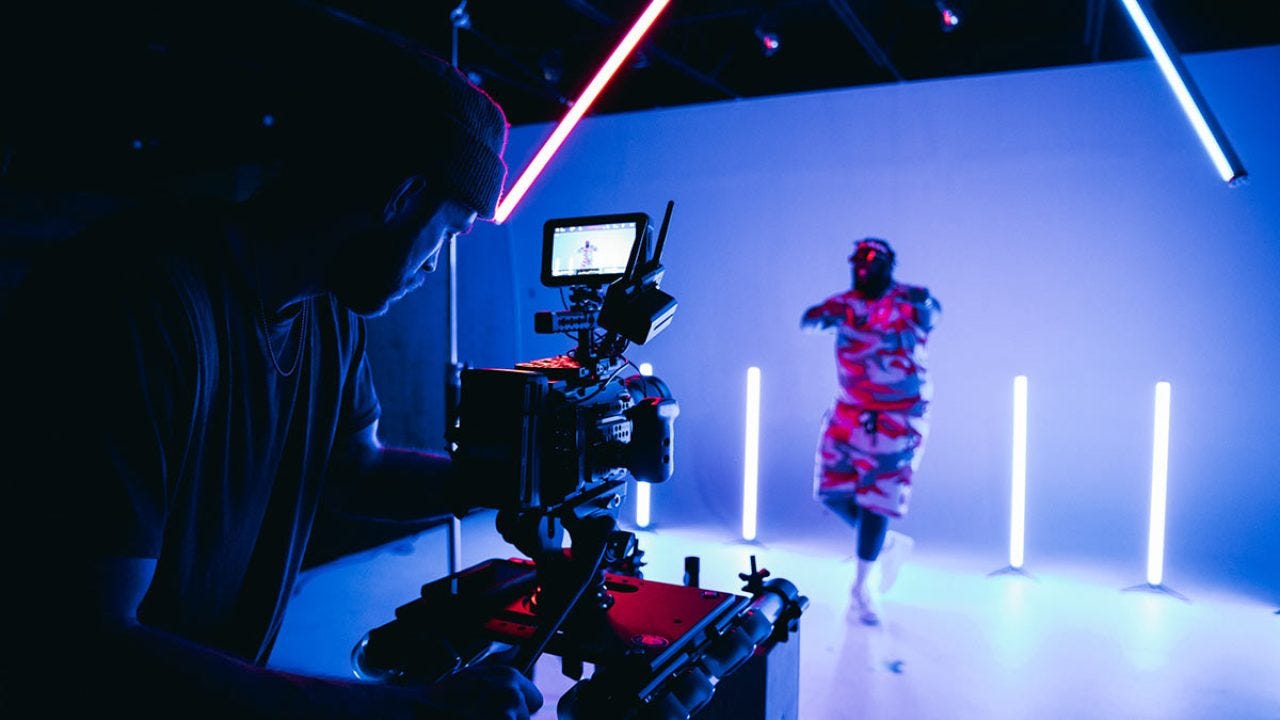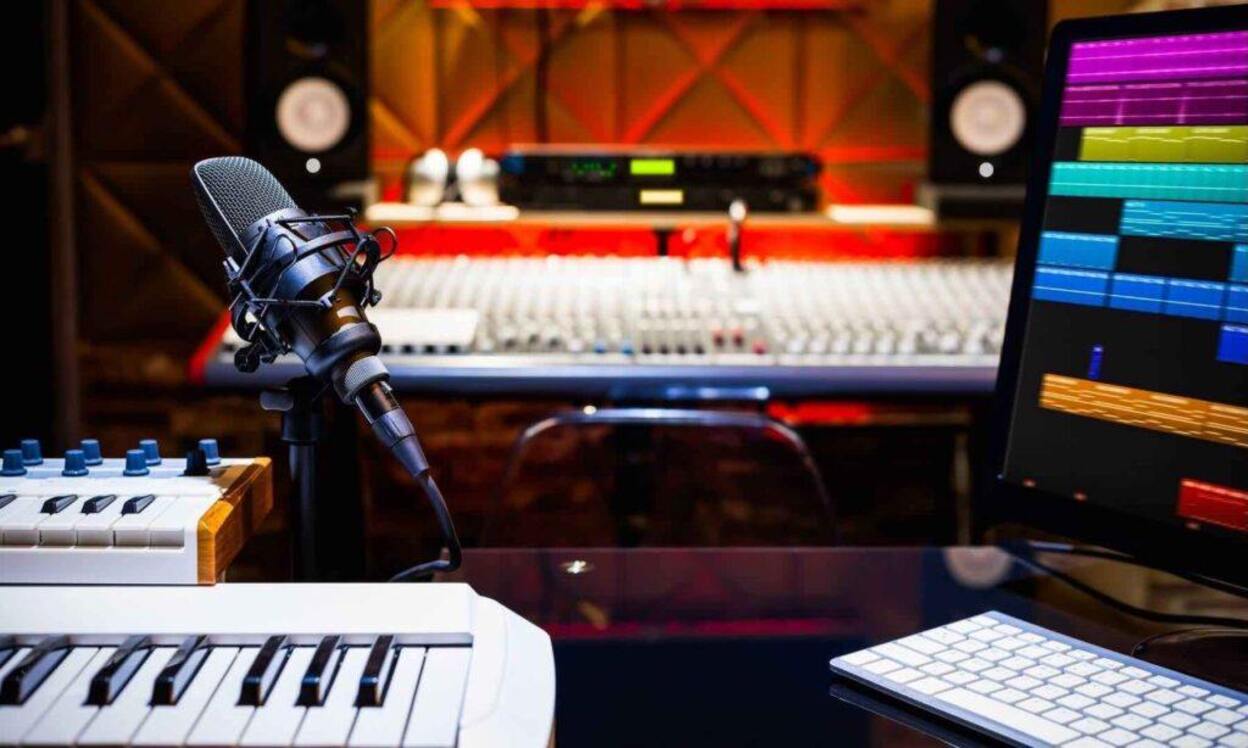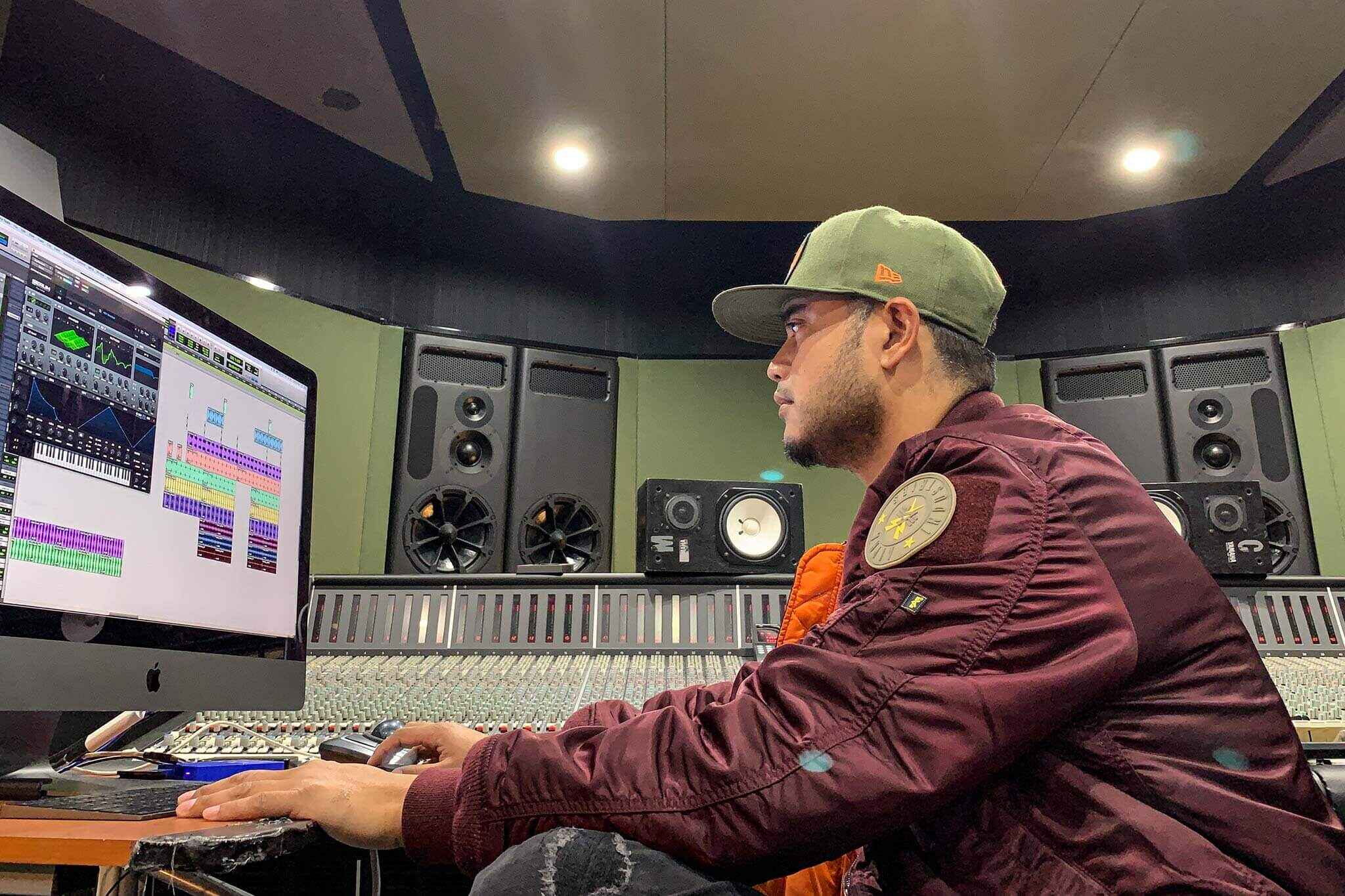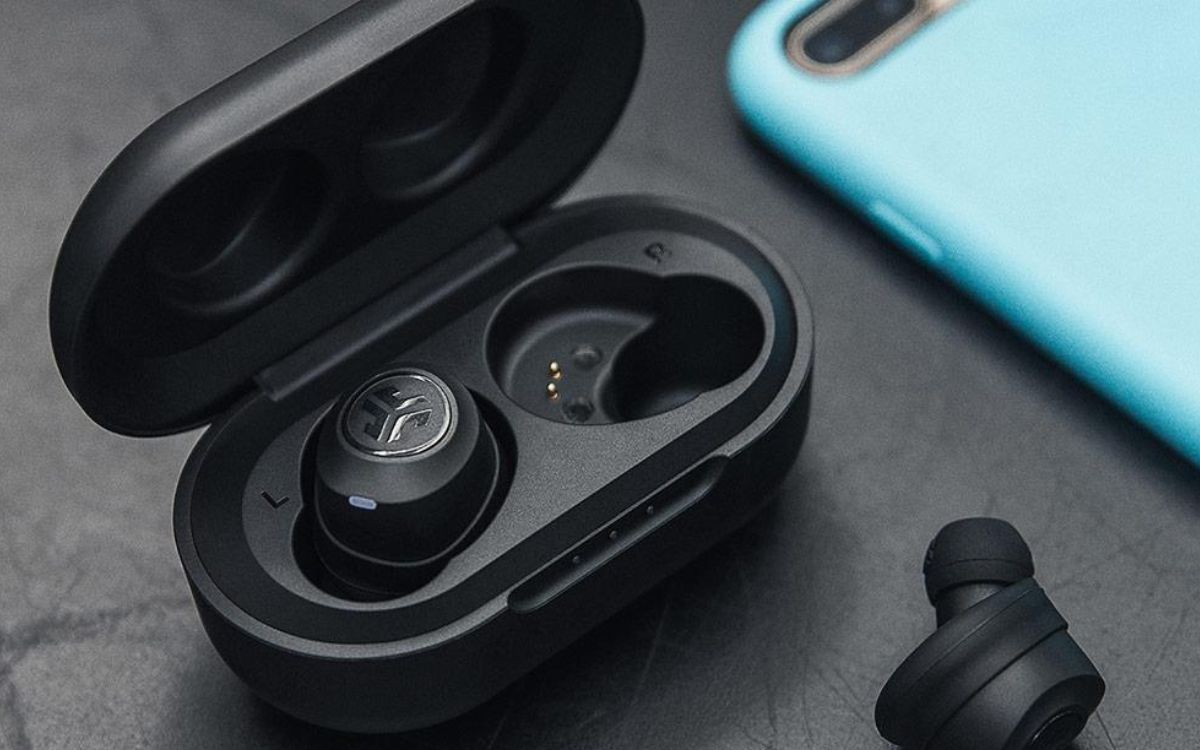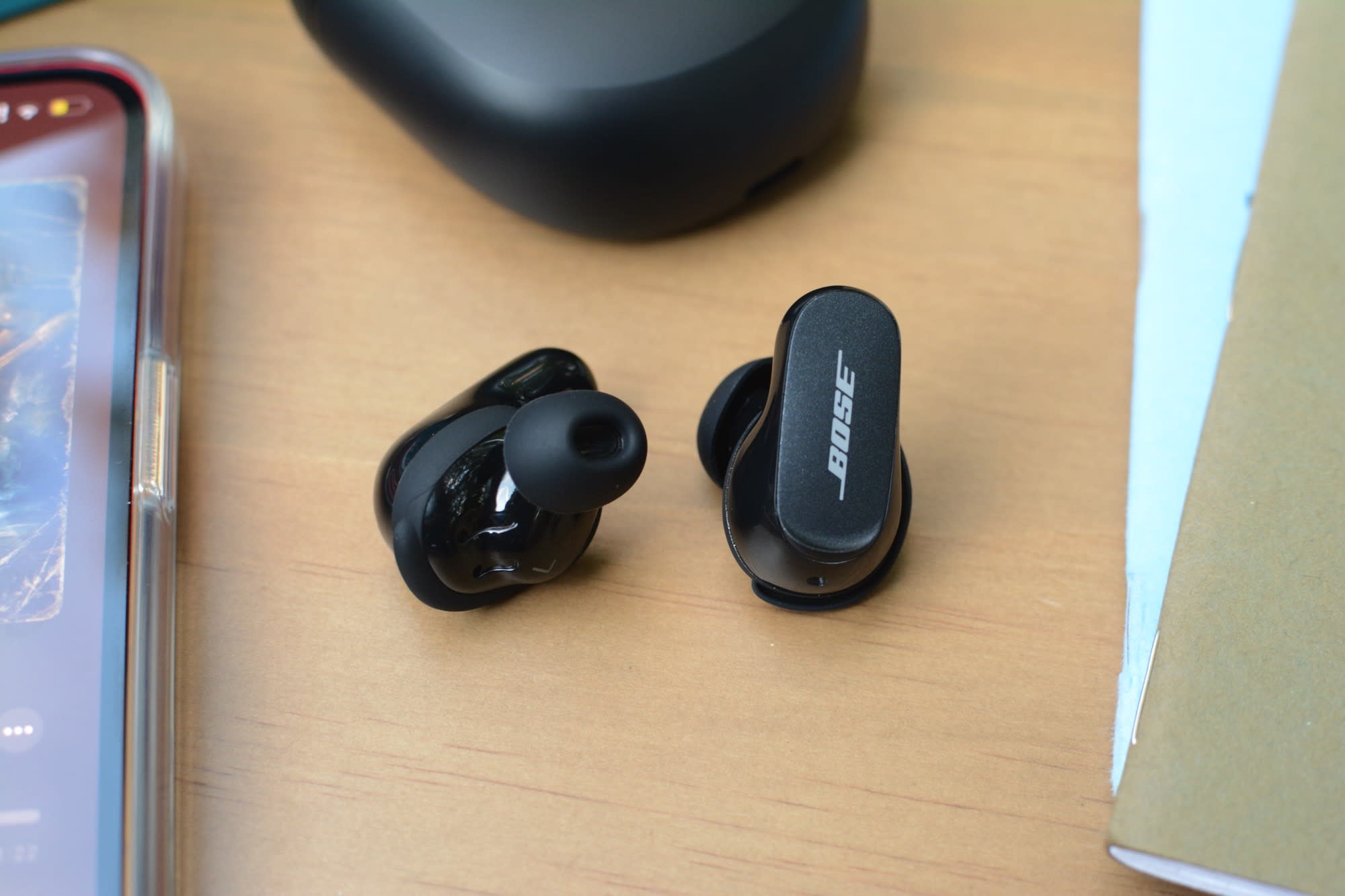Home>Production & Technology>Producer>How Long Does It Take To Become A Music Producer
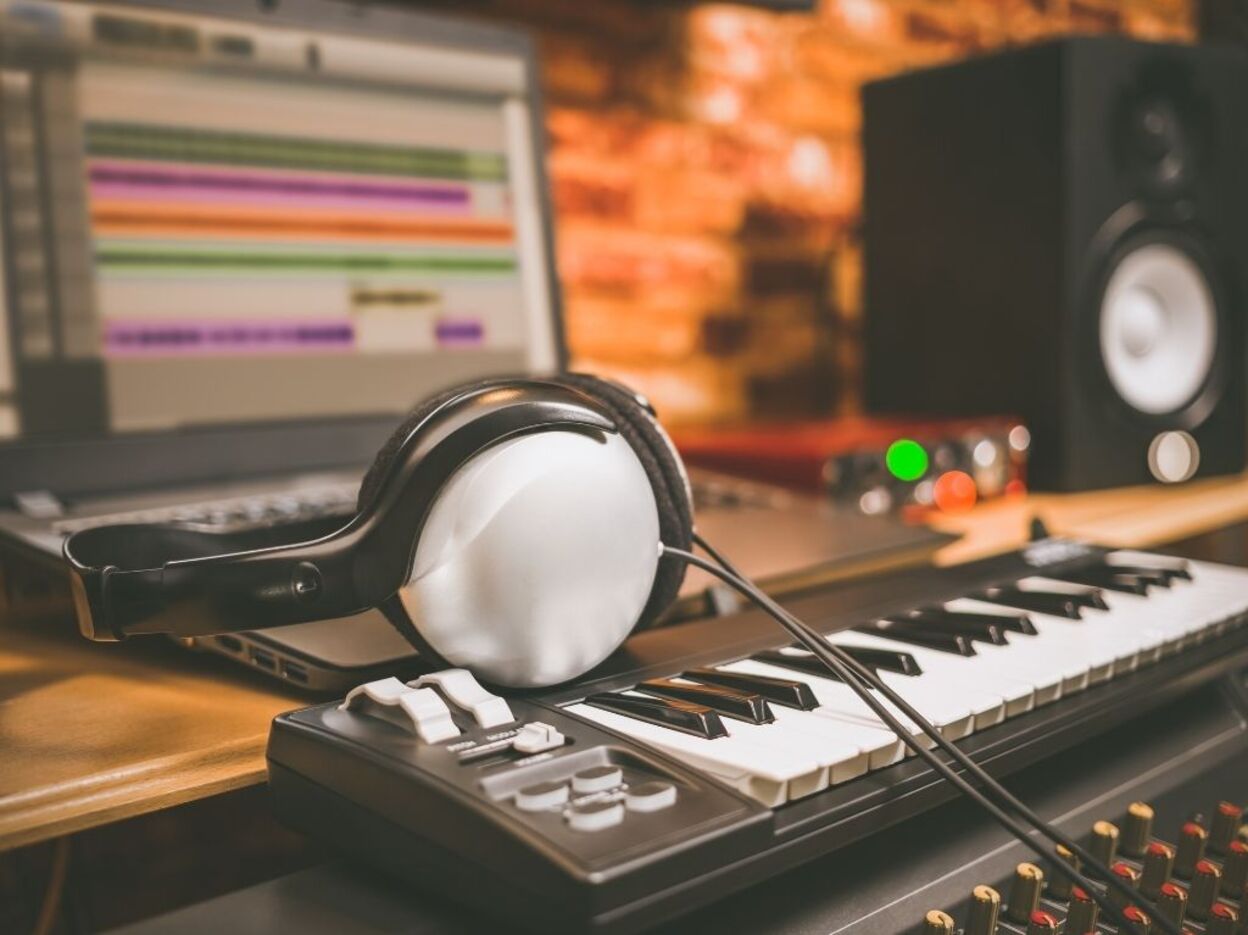

Producer
How Long Does It Take To Become A Music Producer
Published: March 5, 2024
Become a music producer and learn how long it takes to achieve success in the industry. Discover the path to becoming a successful music producer.
(Many of the links in this article redirect to a specific reviewed product. Your purchase of these products through affiliate links helps to generate commission for AudioLover.com, at no extra cost. Learn more)
Table of Contents
Introduction
So, you've got a passion for music and an ear for creating captivating sounds. Perhaps you've spent countless hours experimenting with different beats and melodies, and you're now considering turning your musical aspirations into a full-fledged career as a music producer. But how long does it take to become a music producer? The journey to becoming a successful music producer is as diverse as the sounds you aim to create. It involves a combination of education, training, skill development, portfolio building, and seizing opportunities in the dynamic music industry.
Becoming a music producer is not just about pressing buttons and mixing tracks. It's about understanding the nuances of music theory, mastering the technical aspects of audio production, and developing a keen sense of creativity and innovation. It's a journey that requires dedication, perseverance, and a genuine love for music in all its forms.
As we delve into the intricacies of this profession, we'll explore the various pathways that aspiring music producers can take to establish themselves in the industry. From formal education and training to honing essential skills and building a compelling portfolio, the road to becoming a music producer is paved with diverse experiences and opportunities.
So, if you're ready to embark on this melodic adventure and carve your niche in the world of music production, fasten your seatbelt and get ready to explore the multifaceted journey of becoming a music producer. Let's dive into the educational and training aspects, the development of essential skills, the art of building a standout portfolio, and the strategies for finding promising opportunities in the ever-evolving music landscape. It's time to turn up the volume on your dreams and discover what it truly takes to become a music producer.
Education and Training
Embarking on the journey to become a music producer often involves a combination of formal education, specialized training, and hands-on experience. While there is no singular path to success in this field, pursuing relevant education and training can significantly enhance one's skills and understanding of the music production process.
Formal Education
Many aspiring music producers opt to pursue formal education in music production, audio engineering, or related fields. This often involves enrolling in accredited music production programs offered by universities, colleges, or specialized music institutes. These programs typically cover a wide range of topics, including music theory, sound design, recording techniques, mixing and mastering, and music business fundamentals. Additionally, students may have the opportunity to work in state-of-the-art recording studios and gain valuable insights from experienced industry professionals.
Specialized Training
In addition to formal education, specialized training programs and workshops provide aspiring music producers with focused instruction in specific areas of music production. These training opportunities may include courses in digital audio workstations (DAWs), music software, live sound engineering, and electronic music production. Furthermore, many renowned music production software companies offer certification programs, enabling individuals to gain expertise in using industry-standard tools and technologies.
Hands-On Experience
While formal education and specialized training are valuable, hands-on experience is equally crucial in the journey to becoming a proficient music producer. This often involves internships, apprenticeships, or freelance opportunities where aspiring producers can apply their skills in real-world settings. Collaborating with artists, working in recording studios, and participating in live music events can provide invaluable practical experience and foster a deeper understanding of the multifaceted nature of music production.
Self-Directed Learning
Beyond formal education and structured training programs, self-directed learning plays a pivotal role in the development of a music producer's skill set. This may involve exploring online tutorials, experimenting with different production techniques, and continuously honing one's craft through independent projects. Embracing a spirit of curiosity and a willingness to explore new musical genres and production styles can contribute to a well-rounded and adaptable approach to music production.
In essence, the journey of education and training for a music producer is a dynamic and multifaceted process. It encompasses a blend of formal education, specialized training, hands-on experience, and self-directed learning, all of which contribute to the cultivation of a versatile and knowledgeable music producer.
The path to becoming a music producer is not solely defined by the attainment of a degree or completion of a specific training program. Rather, it is characterized by a continuous pursuit of knowledge, a passion for innovation, and a commitment to refining one's craft in the ever-evolving landscape of music production.
Developing Skills
Developing the essential skills required to thrive as a music producer is a multifaceted journey that demands a blend of technical expertise, creative ingenuity, and a profound understanding of the intricacies of sound. Aspiring music producers must cultivate a diverse skill set that encompasses music theory, sound design, audio engineering, and an acute awareness of industry trends. Here's a closer look at the key skills that form the foundation of a successful music producer's repertoire:
Proficiency in Music Theory
A strong grasp of music theory is fundamental for any aspiring music producer. Understanding scales, chords, harmonic progressions, and rhythmic structures provides the groundwork for composing compelling melodies and harmonies. Moreover, delving into the nuances of music theory enables producers to experiment with unconventional chord progressions, modal interchange, and melodic variations, infusing their productions with depth and originality.
Mastery of Digital Audio Workstations (DAWs)
Proficiency in using digital audio workstations is indispensable for modern music producers. DAWs serve as the creative playground where producers sculpt their sonic landscapes, arrange musical elements, and apply various effects and processing techniques. Becoming adept at navigating DAWs and understanding their functionalities empowers producers to bring their musical visions to life with precision and finesse.
Sound Design and Synthesis
The art of sound design and synthesis is a cornerstone of music production. From crafting unique synth patches to manipulating audio samples, sound design allows producers to shape the sonic identity of their compositions. Developing expertise in utilizing synthesizers, samplers, and audio manipulation tools equips producers with the ability to craft distinctive sounds that resonate with listeners and set their productions apart.
Audio Engineering Techniques
An in-depth understanding of audio engineering principles is essential for achieving professional-grade sound quality in music productions. This includes knowledge of recording techniques, microphone placement, signal processing, and mixing and mastering practices. By honing their audio engineering skills, producers can ensure that their creations sound polished, balanced, and sonically captivating across various playback systems.
Adaptability and Innovation
In the dynamic landscape of music production, adaptability and innovation are invaluable skills. Producers must stay abreast of emerging technologies, production trends, and genre-specific conventions while also pushing the boundaries of creativity. Embracing a spirit of innovation allows producers to experiment with unconventional production methods, blend diverse musical influences, and carve out a distinct artistic identity.
Collaborative and Communication Skills
Effective collaboration and communication skills are crucial for music producers, especially when working with artists, musicians, and industry professionals. Building strong interpersonal relationships, articulating creative visions, and fostering a collaborative environment are essential for bringing musical projects to fruition and ensuring a harmonious working dynamic within the production process.
In essence, developing a comprehensive skill set as a music producer is an ongoing endeavor that requires dedication, curiosity, and a relentless pursuit of excellence. By mastering music theory, embracing cutting-edge technologies, refining sound design capabilities, and fostering a spirit of innovation, aspiring music producers can position themselves for success in the dynamic and vibrant world of music production.
Building a Portfolio
Building a compelling portfolio is an indispensable aspect of establishing oneself as a reputable music producer. A well-crafted portfolio serves as a showcase of a producer's creative prowess, technical proficiency, and versatility in music production. It is a tangible representation of their artistic journey, encompassing a diverse array of projects, collaborations, and sonic explorations. Here's a closer look at the pivotal elements involved in the process of building a robust portfolio as a music producer.
Diverse Musical Projects
A robust portfolio should encompass a range of musical projects that highlight the producer's versatility and adaptability across different genres and styles. This may include original compositions, remixes, soundtracks, and production work for various artists. By showcasing a breadth of musical projects, producers demonstrate their ability to navigate diverse sonic landscapes and cater to a wide spectrum of artistic visions.
Collaborations and Featured Works
Collaborations with vocalists, instrumentalists, and fellow producers provide an opportunity to showcase the producer's ability to collaborate effectively and synergistically. Featuring collaborative works in the portfolio not only demonstrates the producer's versatility in working with different talents but also underscores their capacity to bring out the best in collaborative endeavors.
Live Performance Recordings
Incorporating live performance recordings into the portfolio can offer a glimpse into the producer's prowess in capturing the energy and essence of live music. Whether it's recording, mixing, or producing live performances, showcasing these projects can illustrate the producer's ability to translate the raw dynamism of live music into captivating sonic experiences.
Sound Design and Audio Engineering Showcases
Highlighting sound design projects, audio engineering demonstrations, and before-and-after examples of mixing and mastering can provide insights into the producer's technical acumen and sonic craftsmanship. These showcases serve as a testament to the producer's ability to sculpt and refine sonic elements, resulting in polished and immersive auditory experiences.
Multimedia and Cross-Platform Projects
Incorporating multimedia projects, such as collaborations with visual artists, filmmakers, or game developers, can broaden the scope of the portfolio and showcase the producer's adaptability in creating music for various media. Furthermore, featuring cross-platform projects underscores the producer's ability to craft music that seamlessly integrates with visual and interactive elements, demonstrating a holistic approach to sonic storytelling.
In essence, building a portfolio as a music producer is a dynamic and ongoing process that involves curating a diverse and impactful body of work. By showcasing a range of projects, collaborations, technical showcases, and multimedia endeavors, producers can present a comprehensive narrative of their creative journey and establish a compelling presence in the competitive landscape of music production.
Finding Opportunities
In the dynamic realm of music production, finding opportunities is a pivotal aspect of establishing a successful and fulfilling career as a music producer. While talent and technical proficiency form the bedrock of a producer's skill set, seizing promising opportunities is essential for gaining exposure, expanding one's network, and translating creative aspirations into tangible achievements. Here's an exploration of the multifaceted avenues through which aspiring music producers can uncover and capitalize on opportunities in the industry.
Networking and Collaboration
Building a robust network of industry connections and fostering collaborative relationships is instrumental in discovering opportunities as a music producer. Engaging with fellow musicians, artists, and industry professionals through social events, music conferences, and online platforms can lead to collaborative projects, referrals, and potential career-defining opportunities. By actively participating in the music community and nurturing meaningful connections, producers can gain access to a wealth of creative collaborations and industry insights.
Online Platforms and Digital Marketplaces
The digital landscape offers a plethora of platforms and marketplaces where music producers can showcase their talents, collaborate with artists, and monetize their productions. Online music communities, streaming platforms, and digital marketplaces provide avenues for producers to license their music for various media projects, connect with emerging artists seeking production services, and reach a global audience. Leveraging these digital platforms can open doors to diverse opportunities in music licensing, sync placements, and virtual collaborations.
Industry Events and Competitions
Participating in industry events, music competitions, and talent showcases can be a catalyst for discovering opportunities and gaining recognition as a music producer. Events such as music festivals, industry showcases, and producer competitions offer platforms for producers to showcase their work, connect with industry influencers, and gain visibility within the music community. Additionally, winning accolades in producer competitions or securing showcases at industry events can elevate a producer's profile and attract attention from labels, artists, and industry professionals.
Music Supervisors and Sync Licensing
Exploring opportunities in music supervision and sync licensing can be a lucrative avenue for music producers to have their work featured in film, television, advertising, and other media projects. Building relationships with music supervisors, sync agencies, and production houses can lead to placements of original music and compositions in visual media, providing exposure and potential revenue streams. Proactively seeking opportunities in sync licensing can expand a producer's reach and introduce their music to new audiences across diverse media platforms.
Entrepreneurial Ventures and Brand Collaborations
Embracing entrepreneurial ventures and collaborating with brands can present innovative opportunities for music producers to expand their creative horizons. Venturing into music production for commercials, branded content, and experiential marketing initiatives can provide avenues for producers to infuse their sonic identity into diverse brand campaigns. By leveraging their unique sonic signatures, producers can forge collaborations with brands seeking authentic and impactful music experiences, thus broadening their creative scope and professional reach.
In essence, finding opportunities as a music producer involves a proactive and multifaceted approach that encompasses networking, digital visibility, industry engagement, and entrepreneurial ventures. By embracing these avenues, music producers can navigate the dynamic landscape of the music industry, uncover promising opportunities, and carve a distinct path toward realizing their creative aspirations and professional ambitions.
Conclusion
In conclusion, the path to becoming a music producer is a dynamic and multifaceted journey that encompasses diverse elements, including education, skill development, portfolio building, and seizing opportunities. Aspiring music producers are presented with a spectrum of avenues to cultivate their craft, establish their presence in the industry, and translate their creative visions into impactful sonic experiences.
The educational and training phase forms the foundation of a music producer's expertise, providing a blend of formal education, specialized training, hands-on experience, and self-directed learning. This phase equips producers with the technical acumen, industry insights, and creative inspiration essential for navigating the intricate landscape of music production.
Developing essential skills, such as proficiency in music theory, mastery of digital audio workstations, sound design expertise, and collaborative aptitude, is pivotal for aspiring music producers. These skills enable producers to craft compelling compositions, refine sonic elements, and adapt to the ever-evolving demands of the music industry.
Building a portfolio serves as a testament to a producer's creative prowess, versatility, and technical proficiency. By curating a diverse array of projects, collaborations, and multimedia endeavors, producers can showcase their artistic journey and establish a compelling presence in the competitive realm of music production.
Finding opportunities is a crucial aspect of an aspiring music producer's journey, encompassing networking, digital visibility, industry engagement, and entrepreneurial ventures. By actively seeking collaborations, exploring sync licensing opportunities, and participating in industry events, producers can uncover promising avenues for exposure, growth, and recognition within the music community.
In essence, the journey to becoming a music producer is characterized by a continuous pursuit of knowledge, a passion for innovation, and a commitment to refining one's craft. It is a journey that demands resilience, adaptability, and an unwavering dedication to the art of sonic storytelling. As aspiring music producers embark on this transformative odyssey, they are poised to contribute their unique sonic signatures to the rich tapestry of the music industry, shaping the soundscape of tomorrow with their boundless creativity and unwavering dedication.

